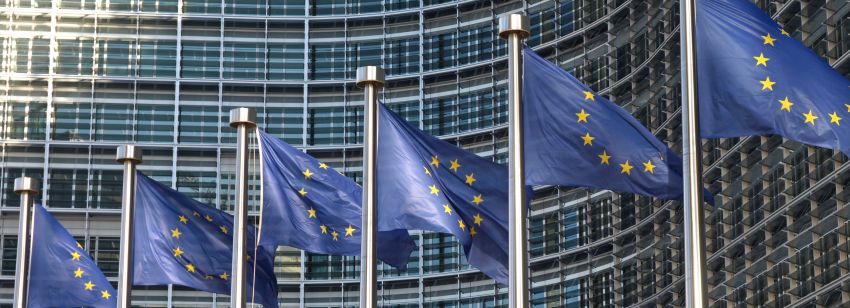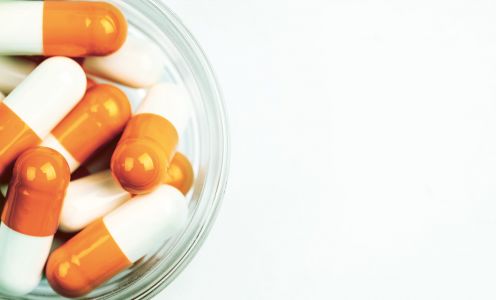Pharma Package of the EU Commission
An overview
Objectives
The Pharma Package is intended to be a legislative instrument to achieve the (main) objectives declared in the Pharmaceutical Strategy:
- Strengthening security of supply for patients (especially in areas of unmet need, such as antimicrobial resistance (AMR) and orphan drugs)
- Promoting competitiveness and innovation
- Strengthening the resilience of the system
- Ensuring a strong voice on the international stage
Guideline
The subject of the proposed guideline to create a reformed community code for drugs for human use includes comprehensive changes regarding market access and marketing of medicinal products. At a glance:
1. Reform of the regulatory protection instruments
In light of the (steadily increasing) duration of clinical development phases, the EU Commission recognizes that comprehensive legal protection is needed to amortize the equally increased development costs for drugs. Patent law, including supplementary protection certificates (SPCs), is supplemented by the regulatory protection instruments of document protection and marketing exclusivity. At the same time, the EU Commission wants to simplify market access for generics, which will relieve the financial burden on healthcare systems.
In order to resolve this conflict of interest, the time limits of the regulatory protection instruments are to be modified. Art. 80 ff. guideline draft provides that the protection of documents will be shortened from currently eight years to six years. Within these six years from the approval of the reference drug, a generic manufacturer (second applicant) may not refer to the results of the pharmaceutical, preclinical and clinical studies and trials of the first applicant in its application for approval. In addition to the six years of document protection, there is a marketing exclusivity period of two years, during which the generic product may not be marketed.
It should be possible to extend these protection periods in certain cases. For example, if an additional therapeutic indication with significant additional clinical benefit is demonstrated within the protection period. An extension is also possible if it can be demonstrated within the first two years (three years in the case of non-profit organizations and SMEs) from the date of marketing authorization that the drug is continuously marketed to meet demand in all member states in which it is authorized.
At the same time, the possibility of suspending the protection under authorization law in the case of compulsory licenses is created due to a public health emergency, Art. 80 Para. 4 of the guideline draft.
2. Simplification of market entry for generics and biosimilars
The proposed guideline simplifies the wording of the existing regulation and stipulates that no preclinical or clinical trials need to be carried out for the approval of a generic medicinal product, but only a bioequivalence study must be submitted that demonstrates equivalence with the reference medicinal product. At the same time, different oral forms of administration with immediate release of the active ingredient are to be considered identical, Art. 9 Para. 3 guideline draft. Comparability studies are to be submitted for biosimilars. The requirements for proving the existence of a generic product would thus be lowered or simplified throughout the EU.
At the same time, Art. 85 of the draft guideline foresees an extension, standardization and concretization of the so-called Roche-Bolar privilege. It regulates that the performance of studies and trials for the purpose of obtaining a marketing authorization under pharmaceutical law cannot be regarded as an infringement of a patent or a supplementary protection certificate, cf. Sec. 11 No. 2b Patent Act. According to the draft, the privilege shall from now on extend to all acts for the purpose of trials, studies and other activities for the generation of data for the following procedures: marketing authorizations for generic, biosimilar, hybrid or bio-hybrid drugs and for subsequent changes (1.); for health technology assessments according to Regulation (EU) 2021/2282 (2.); for pricing and reimbursement (3.), Art. 85 lit. a guideline draft. In Art. 85 lit. b of the guideline draft, privileged activities are listed by way of example and not conclusively. In addition, the scope of addressees is extended to third parties who perform related acts.
3. Reduction of further regulatory barriers; environmental compatibility
Further regulatory barriers to the market entry of medicinal products are also to be reduced.
The approval procedure is to be shortened to a maximum of 180 days, Art. 30 of the guideline draft. Furthermore, a marketing authorization for a medicinal product is to be valid for an unlimited period of time, Art. 46 of the draft directive. In individual cases (e.g. in the case of objective and duly justified safety concerns), a time limit of five years is allowed. The so-called Sunset clause is to be abolished. It allowed the granted marketing authorization to expire if the approved medicinal product was not placed on the market within three years.
According to the guideline draft, however, pharmaceutical manufacturers would be subject to increased regulatory requirements as a result of new extensive environmental impact assessments and the obligation to provide further environmental information, Art. 22 of the guideline draft.
The environmental impact of a drug, its development and production should be widely and comprehensively disclosed.
4. Drug advertising law
The definition of advertising in Art. 175 of the guideline draft is adopted from the existing guideline and completed, so that now also advertising activities in relation to unspecified drugs are to be affected. This is in line with the case law of the ECJ. According to the draft, the circle of persons covered by the law on pharmaceutical advertising will be extended to groups of persons who are authorized (in particular or only) to supply drugs, Art. 180 of the guideline draft. Comparative advertising, in particular advertising that is likely to negatively emphasize another drug, is to be prohibited. Advertising that suggests a comparatively greater efficacy of a medicinal product shall only be possible if this evidence can be provided by summarizing the product characteristics.
Regulation
The new regulation has, among others, the following additional changes:
1. Incentives to combat antimicrobial resistance
In order to counter the rising costs and health risks caused by antimicrobial resistance (AMR), the EU Commission wants to create incentives to drive forward research and development in this area. As an instrument for this, a so-called data exclusivity voucher is to be created, which is to grant an additional year of document protection. The decisive material grant requirement is a significant clinical benefit with regard to resistance to AMR. This requires that
- the new product either represents a new class of antimicrobial agents (1.),
- has a new mechanism of action that is clearly different from existing ones (2.),
- or contains an active substance that was not previously approved in a drug and is directed against a multidrug-resistant organism and a serious or life-threatening disease (3.), Art. 40 regulation draft. According to Art. 41 Para. 3 of the draft regulation, a single transfer of the voucher is possible, i.e. the exclusivity right could be sold. However, a second purchase is prohibited.
2. Orphan drugs, pediatric drugs
The deadlines of the regulatory protection instruments for orphan drugs are also to be adapted. To this end, there are to be flexible extension options, for example in the event of a closing of a significant gap in medical care. The development of pediatric medicinal products shall be supported to a greater extent. Among other things, an extension of the supplementary protection certificate is planned as an instrument for this purpose. In addition, the regulation draft contains comprehensive rules on pediatric testing concepts.
3. Drug availability, security of supply
It is envisaged that the holders of drug approvals will draw up plans to avoid bottlenecks. These plans should always be up to date, and the marketing authorization holders should also be obliged to provide information to the responsible authorities, such as the EMA.
The debate has been ignited
With its Pharma Package, the EU Commission is initiating one of the biggest change projects ever in the pharmaceutical sector. It remains to be seen whether and to what extent its drafts will bring it closer to the goals declared in the Pharmaceutical Strategy. The debate has been ignited, and in any case the players on the market are facing far-reaching changes for which they need to be prepared.
For almost 20 years, SKC has been advising pharmaceutical, biotechnological and medical device manufacturers on upcoming legislative changes and their implications for their products. We incorporate our assessments of the developments and their consequences directly into the advice we provide to our clients. We are the market access special forces.
Sources:
- COM (2023) 192
- COM (2022) 761
- Proposal for a DIRECTIVE OF THE EUROPEAN PARLIAMENT AND OF THE COUNCIL on the Union code relating to medicinal products for human use, and repealing Directive 2001/83/EC and Directive 2009/35/EC
- Stief/Grabow, Quo vadis Arzneimittelrecht?, in: PharmR 2023, 317
- Gassner, Unterlagenschutz im Europäischen Arzneimittelrecht, in: GRUR Int. 2004, 983
About the author

Founder and Managing Director
Fax: +49 511 64 68 14 18




